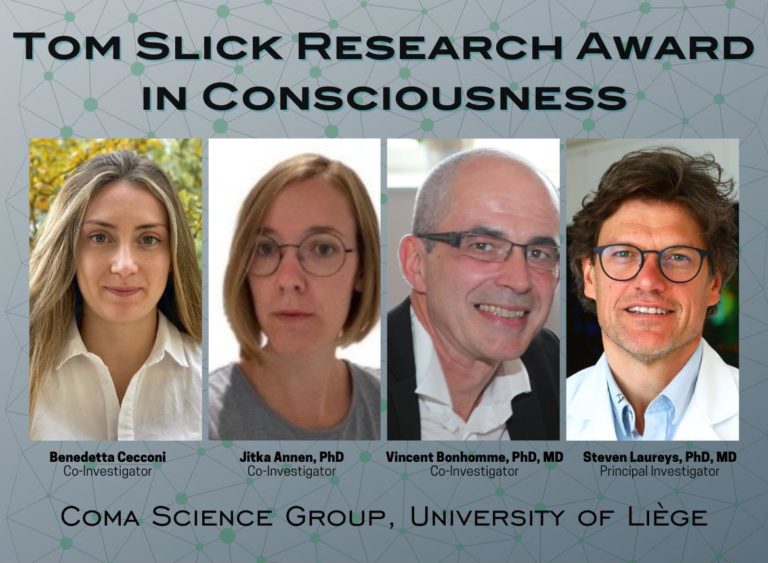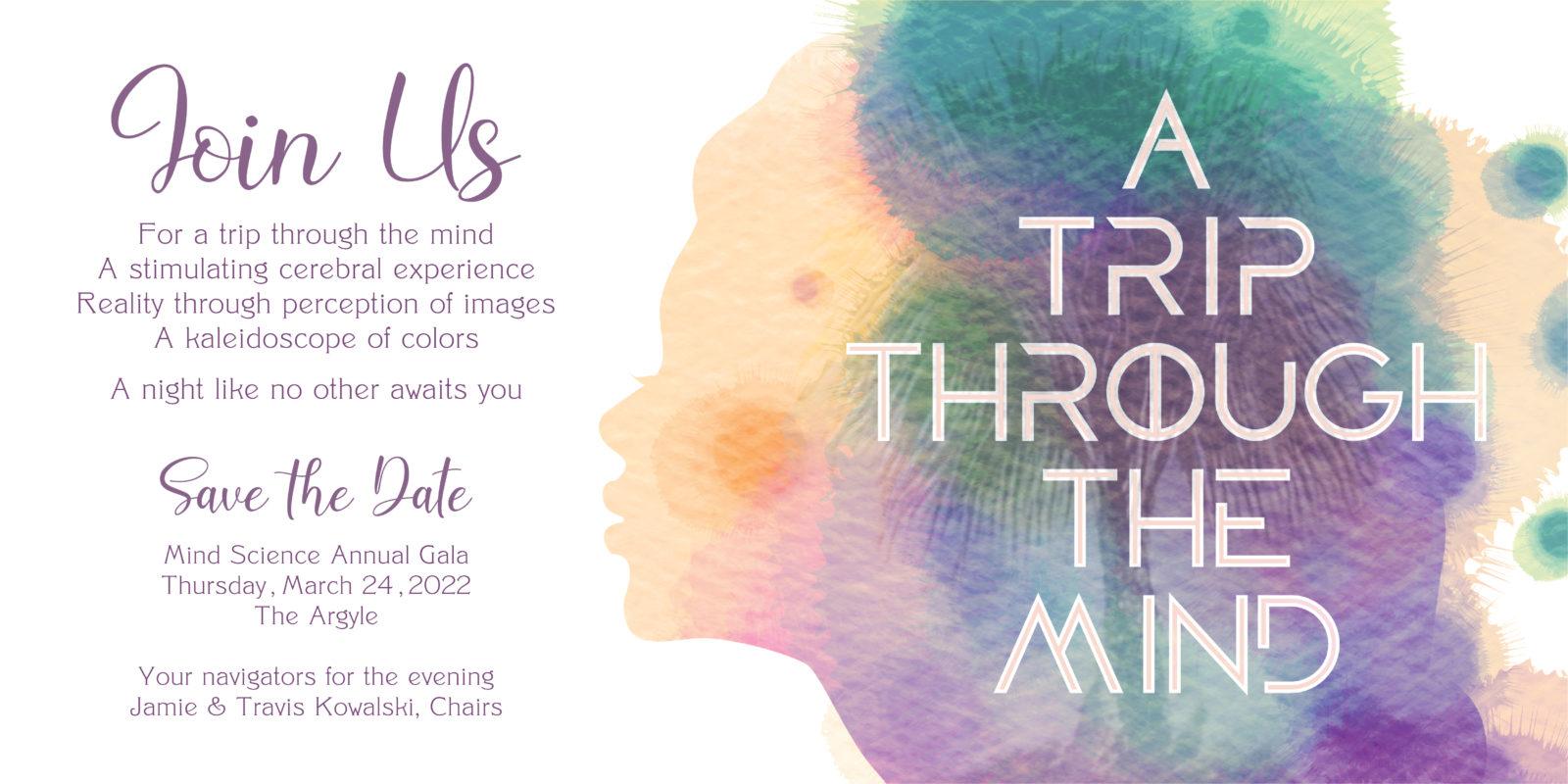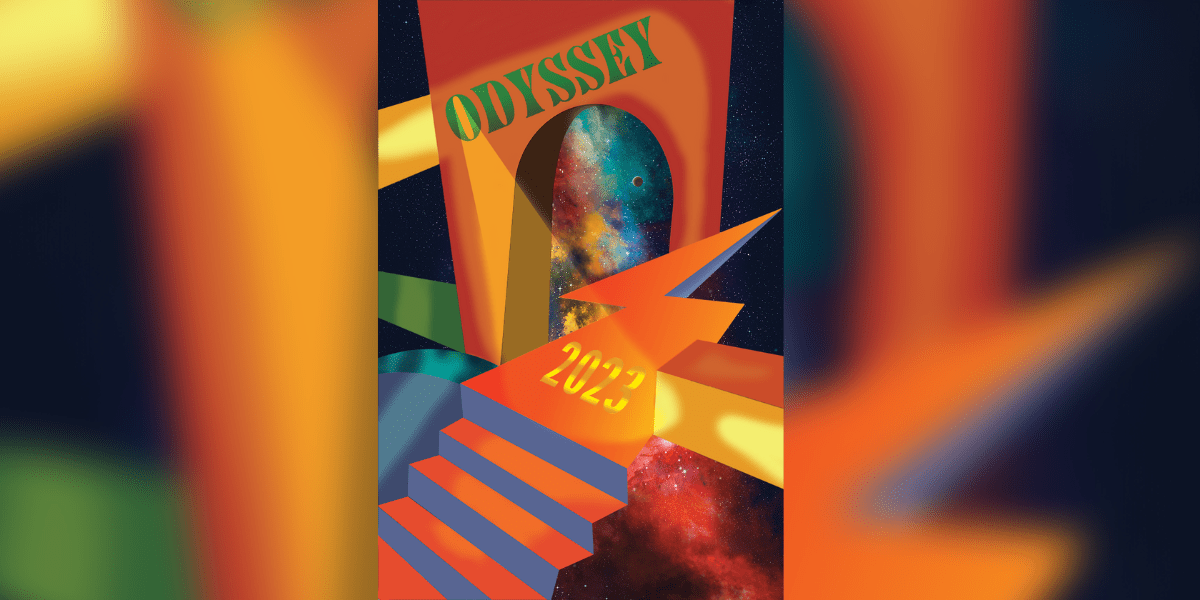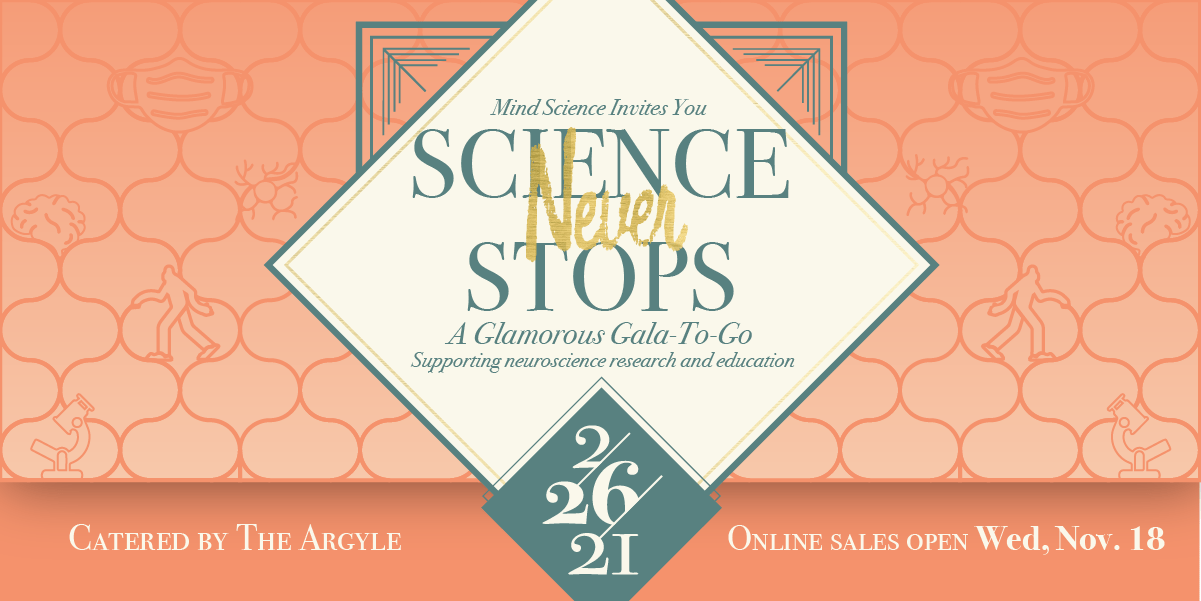Mind Science Awards Researchers $15,000 to Study Consciousness During Surgery

How our brains connect and disconnect our consciousness from any awareness of the environment around us continues to puzzle scientists.
Imagine you are under general anesthesia for surgery. You wouldn’t want to be aware of what is happening to you in the operating room. Yet, over a third of all anesthetized patients, despite appearing to be deeply asleep, experience some level of awareness during surgery.
Reliable measures of conscious connectedness are urgently needed to prevent patients from regaining consciousness prematurely during surgery.
Mind Science has awarded a research team from the University of Liège the $15,000 Tom Slick Research Award in Consciousness to discover the brain mechanisms responsible for how our consciousness disconnects while under anesthesia.
Scientists Benedetta Cecconi, Jitka Annen, Steven Laureys, and Vincent Bonhomme work in the university’s Coma Science Group. They’re looking to uncover the markers that would show how connected a patient is to what is happening during surgery.
Knowing what signs to look for will help anesthesiologists and surgeons know when to start the surgical procedure once the patient is entirely disconnected and, therefore, completely unconscious.
Mind Science is continuing its longtime commitment to early-career neuroscience researchers. Oilman and philanthropist Tom Slick (1916 to 1962) founded Mind Science in 1958 as a nonprofit organization dedicated to funding scientific research and education, exploring what Slick called the “vast potential of the human mind.”
Formerly known as the Mind Science Foundation, the nonprofit organization decided earlier in 2020 to change its name to reflect its renewed dedication to investing in promising neuroscience researchers.
Neurologist and principal investigator Dr. Laureys and his team in the Coma Science Group specialize in refining the process of diagnosing people in a coma or who have lost consciousness. They also work on more effective treatments to stimulate the brain and aid in its recovery.
Laureys is recognized worldwide as a leading clinician and researcher in the field of neurology of consciousness. Mind Science’s mission to support early-career scientists will provide the winning team working in Laureys’ lab a research opportunity.
Cecconi, Annen, and Bonhomme are focused on determining when a patient is genuinely unconscious, findings that would help eliminate awareness while under anesthesia.
“At one end of the spectrum is pure unconsciousness in which you don’t have any sensations at all,” Cecconi said. “At the other end of the spectrum, you are fully awake.”
In between these two extremes of consciousness, people are typically dreaming, Cecconi explained.
Disconnected dreaming means the patient is completely unaware of the surroundings. However, in a connected dreaming state, a patient might feel sensations or hear sounds in the operating room that becomes part of the dream. Health care professionals do not want patients to experience this partial awareness in the operating room.
“What we know about the disconnected states of consciousness is very little,” Cecconi said. “By successfully identifying the mechanisms underlying the disconnected state, we can use this information to build a simple but robust algorithm that can quickly indicate whether a patient is completely disconnected during anesthesia.”
“Providing opportunities for young scientists to fund their work and hone their communications skills has always been critical for researchers in a fiercely competitive academic market,” Meriam Good, Mind Science Executive Director said.
Scientists applying for Mind Science awards must submit a written summary of their proposed research that explains in understandable language the importance of supporting this early-stage research. After scientific review, Mind Science board members decide which proposals to fund.
The mechanisms that drive consciousness and memories while under anesthesia are unknown. Although there are some working theories, more research is needed to confirm exactly how our brains function under different awareness stages.
“Fully understanding the mechanics of consciousness is one of the most pressing issues in neuroscience,” Good said. “Our funding will help Cecconi and the team uncover insights into the regulation of consciousness itself.”



